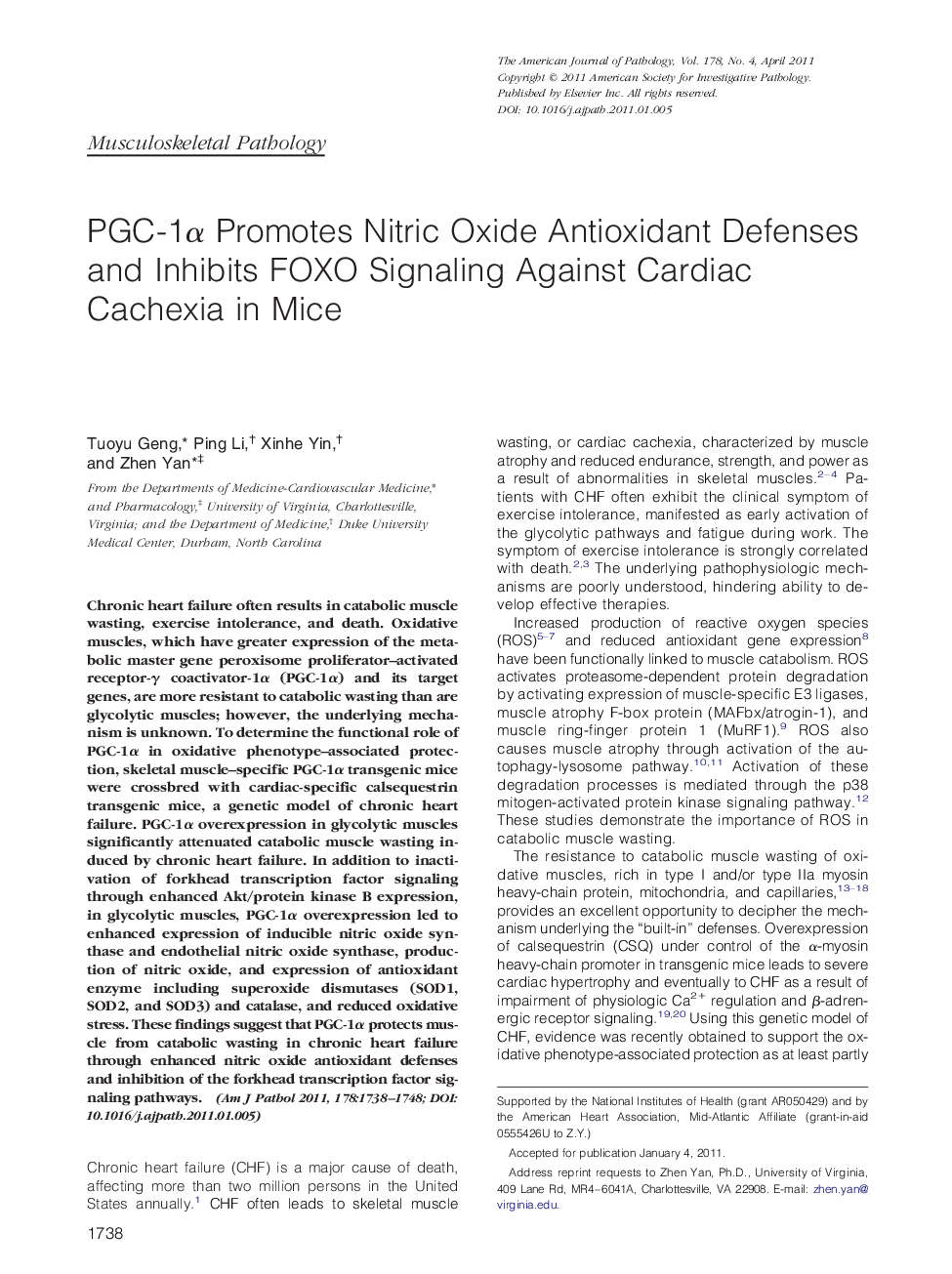| Article ID | Journal | Published Year | Pages | File Type |
|---|---|---|---|---|
| 5936065 | The American Journal of Pathology | 2011 | 11 Pages |
Abstract
Chronic heart failure often results in catabolic muscle wasting, exercise intolerance, and death. Oxidative muscles, which have greater expression of the metabolic master gene peroxisome proliferator-activated receptor-γ coactivator-1α (PGC-1α) and its target genes, are more resistant to catabolic wasting than are glycolytic muscles; however, the underlying mechanism is unknown. To determine the functional role of PGC-1α in oxidative phenotype-associated protection, skeletal muscle-specific PGC-1α transgenic mice were crossbred with cardiac-specific calsequestrin transgenic mice, a genetic model of chronic heart failure. PGC-1α overexpression in glycolytic muscles significantly attenuated catabolic muscle wasting induced by chronic heart failure. In addition to inactivation of forkhead transcription factor signaling through enhanced Akt/protein kinase B expression, in glycolytic muscles, PGC-1α overexpression led to enhanced expression of inducible nitric oxide synthase and endothelial nitric oxide synthase, production of nitric oxide, and expression of antioxidant enzyme including superoxide dismutases (SOD1, SOD2, and SOD3) and catalase, and reduced oxidative stress. These findings suggest that PGC-1α protects muscle from catabolic wasting in chronic heart failure through enhanced nitric oxide antioxidant defenses and inhibition of the forkhead transcription factor signaling pathways.
Related Topics
Health Sciences
Medicine and Dentistry
Cardiology and Cardiovascular Medicine
Authors
Tuoyu Geng, Ping Li, Xinhe Yin, Zhen Yan,
